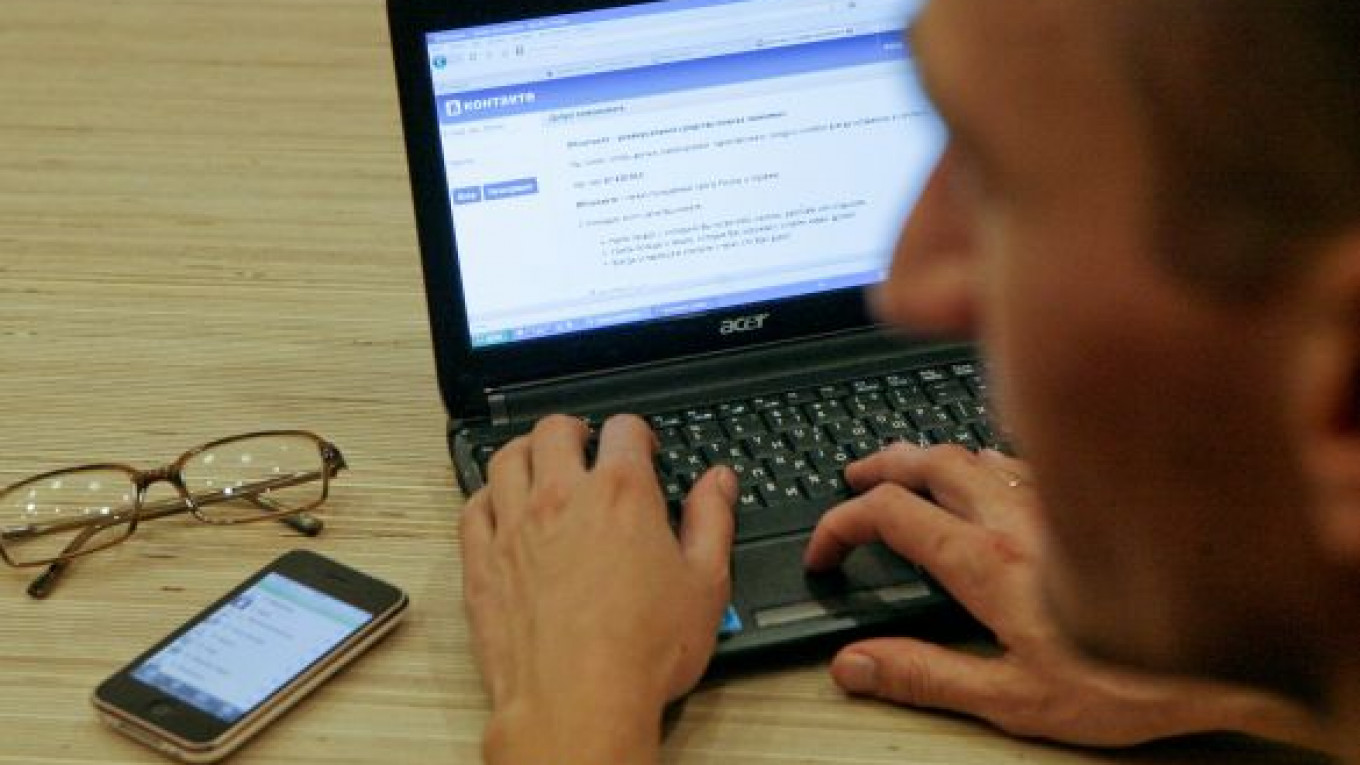In a small but symbolic victory for LGBT activists, Russia's most popular online social network, Vkontakte, will now members to indicate that they are in same-sex relationships.
"I can confirm the decision. We decided to meet users halfway," company spokesman Vladislav Tsyplukhin wrote in a Twitter message to The Moscow Times on Tuesday.
The company did not otherwise officially announce the change, which was made in response to an appeal last week by the Raduzhnaya (Rainbow) Association, an LGBT-advocacy group.
"We hadn't even thought of it before," Tsyplukhin wrote.
But Vkontakte refused to follow in the footsteps of global leader Facebook, which allows same-sex marriages and recently introduced a special icon for them.
The change is a small victory for LGBT activists, who earlier this year saw several Russian regions, including St. Petersburg, Arkhangelsk and Novosibirsk, ban "homosexual propaganda" to minors in what activists described as a ruse to hamper efforts to fight prejudice against gays.
Vkontakte found itself embroiled in scandal last week when a technician reportedly told a gay user that in order to indicate his relationship, which was same-sex, he would have to change the gender listed on his profile, Izvestia reported.
The user, identified as Oleg, was told that the company was acting in accordance with Russian law, which does not recognize same-sex marriage, a point Tsyplukhin reiterated.
Nikolai Alexeyev, the country's most prominent gay rights activist, speculated that concerns about the scandal hurting the bottom line caused the company's change of heart.
He described the victory as a small one, given the continued refusal to allow same-sex marriages.
"Even if your same-sex marriage is registered abroad, you still can't register it on Vkontakte. In other words, the discrimination continues as it did before," he said by telephone on Tuesday.
The new settings, which site enthusiasts revealed in a blog on Aug. 3, have not come without controversy. More than 3,000 comments from supporters and detractors have since appeared on the blog.
"The homophobes have completely lost their mind. Vkontakte did the right thing. Good job!" wrote Vkontakte user Ivan Baryshev.
Meanwhile, user Konstantin Dolganovsky wrote, "I don't approve. Of course, in and of itself, the decision doesn't bother me. But it's part of a larger tendency — they get one concession, then another, then another, and pretty soon they're saying, 'You all owe us everything!'"
Vkontakte is Russia's largest online social network, with about 91 million registered users in the country, according to figures on the company's website.
Facebook, which has more than 900 million registered users worldwide, introduced a special icon for same-sex married couples in early July.
But the social network continues to face criticism from transgender users, who say the site shouldn't force users to identify themselves as either male or female.
A spokesman for Odnoklassniki, Russia’s second-largest online social network, wrote in e-mailed comments that the site does not allow same-sex relationships because users had not requested them.
A Message from The Moscow Times:
Dear readers,
We are facing unprecedented challenges. Russia's Prosecutor General's Office has designated The Moscow Times as an "undesirable" organization, criminalizing our work and putting our staff at risk of prosecution. This follows our earlier unjust labeling as a "foreign agent."
These actions are direct attempts to silence independent journalism in Russia. The authorities claim our work "discredits the decisions of the Russian leadership." We see things differently: we strive to provide accurate, unbiased reporting on Russia.
We, the journalists of The Moscow Times, refuse to be silenced. But to continue our work, we need your help.
Your support, no matter how small, makes a world of difference. If you can, please support us monthly starting from just $2. It's quick to set up, and every contribution makes a significant impact.
By supporting The Moscow Times, you're defending open, independent journalism in the face of repression. Thank you for standing with us.
Remind me later.






